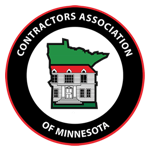Legislative Update – 2017
Legislative Update 2017
In a more unusual twist of events than the past six years, the final days of the 2017 Legislative session and special session between Governor Dayton and the Legislature took another strange turn. Unable to balance the budget by the constitutional deadline, Governor Dayton and the Legislature came to a global agreement on spending bills half an hour before adjourning sine die with the caveat that all would come back in the morning to start passing the spending bills…by 7 am the next day.
As special session began it became clear that seven of the eleven bills would not be brokered, reviewed, and sent to each body for passage off the floor by 7 am the next day. Consequently, the special session lasted three more days. The result was each side crying foul. Governor Dayton decried “poison pill” language was snuck into the State Government Finance bill shutting down the Department of Revenue and sending pink slips to all 1,300 employees if the Tax bill wasn’t signed into law. In what can only be described about as turnabout is fair play, the Governor turned around and line item vetoed all appropriations for the House of Representatives and the Senate effectively shutting down the legislature. Again, the threat of pink slips to state employees.Hence, the impending constitutional crisis. Does the Governor have the authority to funding to the legislature? Each side has drawn its proverbial sword and to Court they are a headed.
For the past few years, the Contractors Association of MN (CAM) has been moving legislation that would hold insurance companies more accountable to homeowners and contractors during an occurrence related event. This year, the Association was hopeful that Republicans (who are typically business friendly) would assist in advancing the CAM agenda. Rep. Tama Theis (R – St. Cloud), who owns a contracting business in the St. Cloud area, authored the legislation with several other legislators willing to move the legislation through the process. Unfortunately, once again, we were stalled by Commerce Committee Chairs in the House and the Senate (Republicans to boot) who wouldn’t hear our legislation because the insurance companies opposed it. We were, however, able to pique curiosity in the House Commerce Committee when Rep. Greg Davids (R – Preston) offered an amendment to a related bill that would have required insurance adjusters to have better Minnesota code education. The amendment was eventually withdrawn but as previously noted, legislators took note. CAM will be meeting with these and other legislators during the interim to continue educating them on the difficulties of properly repairing a home that has had a storm occurrence related event.
CAM was able to kill a significant piece of legislation that would have allowed insurance companies to continue winnowing away at contractors duty to help a customer in an occurrence related event. This bill was introduced on a Monday and heard Wednesday of the same week. The issue was brought forward by the insurance industry to clarify a MN Supreme Court decision – Wilcox vs State Farm Fire and Casualty. The crux of the issue was whether an insurance provider could depreciate labor costs when arriving at the Actual Cash Value of an insurance claim. The insurance industry subsequently introduced a bill that would allow them to file a form with the Commerce Department to depreciate labor costs. Surprisingly, the Commerce Department was not willing to accept the bill and strongly opposed it.
CAM had strong objections to the meat of the legislation allowing for labor expense depreciation applicable when determining the value of a damaged property in insurance policies. The insurance industry reiterated the intent of the legislation was not to take away benefits from policyholders, but simply to follow the Wilcox decision. Nevertheless, CAM began building consensus objection to the bill; however, the bill moved through the Senate Commerce committee with an amendment to the “good faith statute” that would have allowed for
the depreciation costs of goods, material, labor and services necessary to replace, repair, or rebuild damaged property.
The success came when CAM spoke with Rep. Tama Theis and the House Commerce committee members along with other interested parties to stop this legislation from moving any further.
CAM fully expects a continued assault on the industry due to the influence of the insurance companies up at the Capitol. It is important as a member of the industry to make sure that you contract your legislator when a call to action comes across your email. Also, we had a successful CAM Day on the Hill. Please stay tuned next legislative session for the Day on the Hill. Legislators need to hear first hand from their constituents!

